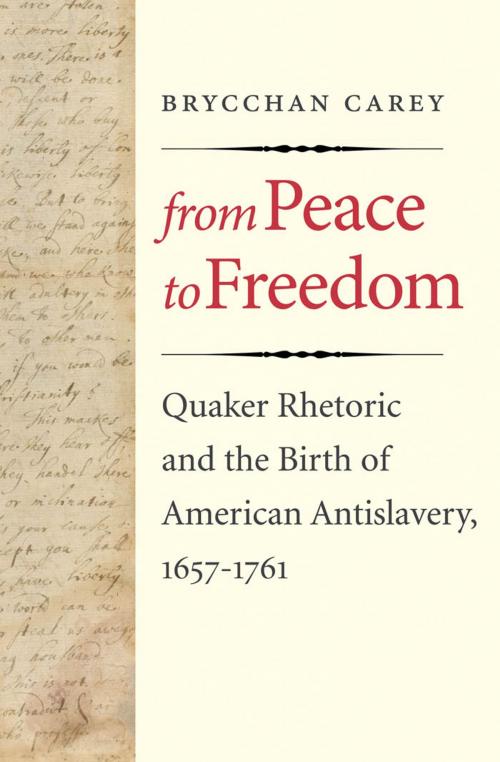From Peace to Freedom
Nonfiction, Religion & Spirituality, Christianity, Denominations, Quakers, History, Americas, United States, Colonial Period (1600-1775)| Author: | Brycchan Carey | ISBN: | 9780300182279 |
| Publisher: | Yale University Press | Publication: | October 30, 2012 |
| Imprint: | Yale University Press | Language: | English |
| Author: | Brycchan Carey |
| ISBN: | 9780300182279 |
| Publisher: | Yale University Press |
| Publication: | October 30, 2012 |
| Imprint: | Yale University Press |
| Language: | English |
In the first book to investigate in detail the origins of antislavery thought and rhetoric within the Society of Friends, Brycchan Carey shows how the Quakers turned against slavery in the first half of the eighteenth century and became the first organization to take a stand against the slave trade.
Through meticulous examination of the earliest writings of the Friends, including journals and letters, Carey reveals the society’s gradual transition from expressing doubt about slavery to adamant opposition. He shows that while progression toward this stance was ongoing, it was slow and uneven and that it was vigorous internal debate and discussion that ultimately led to a call for abolition. His book will be a major contribution to the history of the rhetoric of antislavery and the development of antislavery thought as explicated in early Quaker writing.
In the first book to investigate in detail the origins of antislavery thought and rhetoric within the Society of Friends, Brycchan Carey shows how the Quakers turned against slavery in the first half of the eighteenth century and became the first organization to take a stand against the slave trade.
Through meticulous examination of the earliest writings of the Friends, including journals and letters, Carey reveals the society’s gradual transition from expressing doubt about slavery to adamant opposition. He shows that while progression toward this stance was ongoing, it was slow and uneven and that it was vigorous internal debate and discussion that ultimately led to a call for abolition. His book will be a major contribution to the history of the rhetoric of antislavery and the development of antislavery thought as explicated in early Quaker writing.















